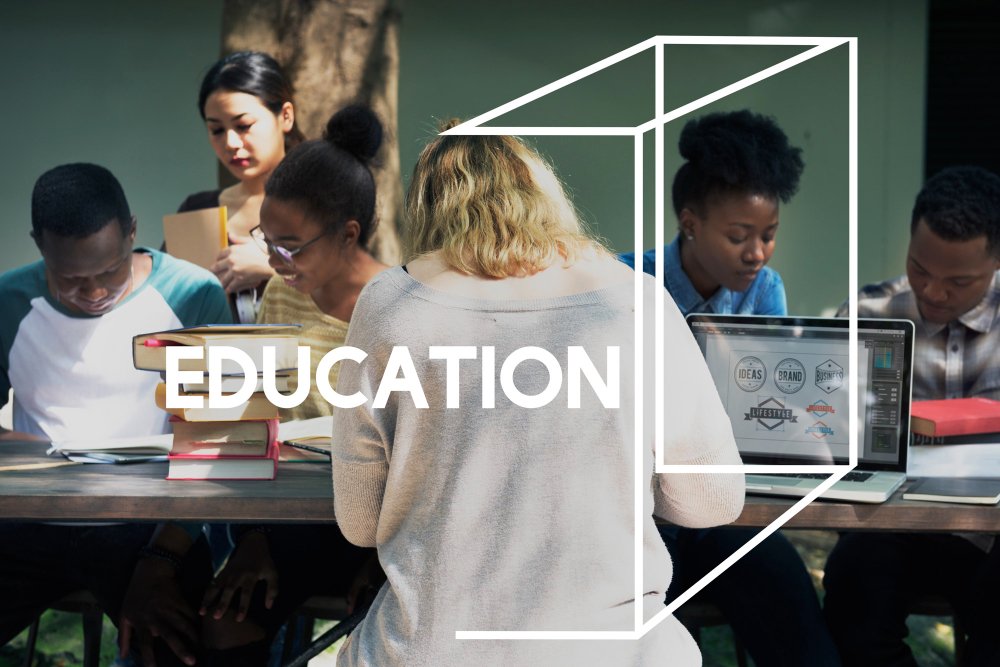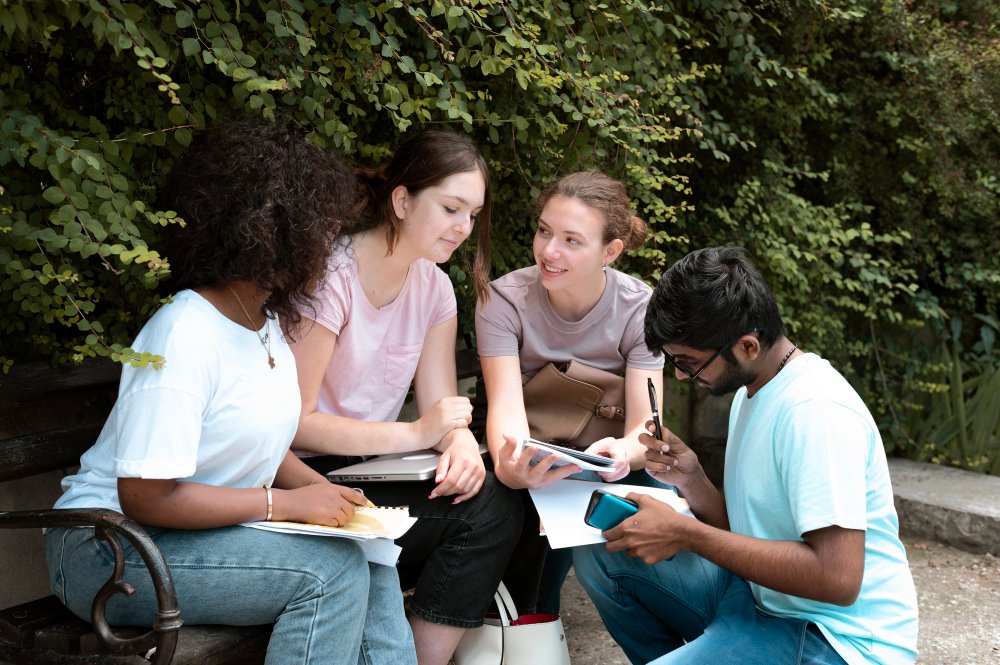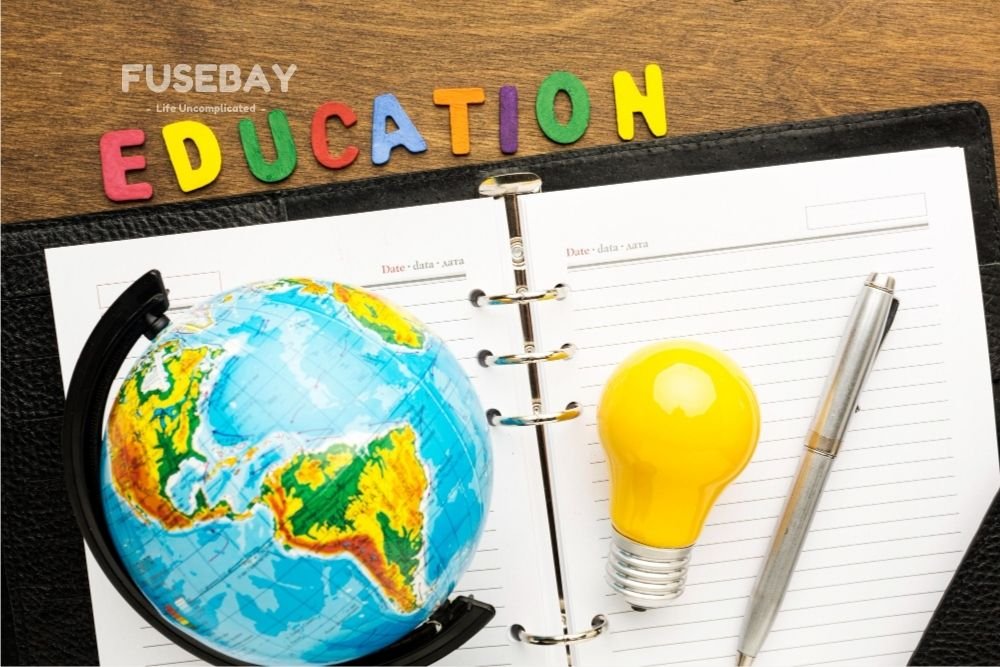Why Education Is Important
Education is the foundation of human progress, shaping individuals and societies by equipping them with the knowledge and skills needed to succeed. It is a powerful tool that fosters critical thinking, creativity, and innovation while preparing people for personal and professional growth. Why education is important lies in its ability to break the cycle of poverty, reduce inequalities, and contribute to a nation’s economic and social development. With education, individuals can make informed decisions, participate actively in society, and improve their overall quality of life. It empowers people with confidence, ethical values, and problem-solving abilities, making them better citizens. Furthermore, it is key to promoting health, cultural awareness, and sustainability.
The Role of Education in Personal Development
Education is more than just acquiring knowledge; it is a transformative process that shapes individuals, helping them develop essential life skills.
1. Enhancing Knowledge and Understanding
One of the fundamental purposes of education is to expand a person’s knowledge base. It provides exposure to different subjects, such as science, mathematics, literature, and history, enabling individuals to understand the world around them. This knowledge allows people to think critically, solve problems, and make well-informed decisions in their personal and professional lives.
2. Building Critical Thinking Skills
Critical thinking is one of the most important skills a person can develop, and it plays a key role in fostering it. Through structured learning, students learn to analyze information, question assumptions, and develop logical arguments. This skill is essential for making sound judgments, solving complex problems, and navigating life’s challenges.
3. Fostering Communication Skills
Effective communication is a vital skill in both personal and professional settings. It helps individuals improve their reading, writing, and verbal communication skills. Being able to express thoughts clearly and confidently allows people to collaborate with others, build relationships, and succeed in various fields.

Education and Economic Growth
A country’s economic prosperity is directly linked to the level of education among its citizens. A well-educated workforce drives innovation, increases productivity, and creates sustainable economic growth.
1. Creating Employment Opportunities
One of the most significant benefits of education is increased employment opportunities. In today’s competitive job market, employers seek candidates with specialized knowledge and skills. Education helps individuals gain qualifications that improve their employability and enable them to secure well-paying jobs.
2. Reducing Poverty & Income Gap
Poverty is one of the biggest challenges faced by many nations, and it is the most effective way to combat it. With access to quality education, individuals can obtain higher-paying jobs, start businesses, and improve their financial stability. It helps bridge the income gap between different social classes by providing equal opportunities for people from all backgrounds.
3. Encouraging Entrepreneurship
Education nurtures creativity and innovation, essential qualities for entrepreneurship. Individuals with a solid educational background are more likely to start their businesses, develop new products, and contribute to economic growth. Entrepreneurial ventures also create job opportunities for others, boosting local economies.

Social Benefits of Education
It is essential for creating a just and harmonious society. It promotes social equality, reduces crime, and fosters a sense of community.
1. Promoting Equality and Social Justice
It provides everyone, regardless of gender, race, or socioeconomic background, with the opportunity to succeed. It empowers marginalized groups, promotes gender equality, and ensures that all individuals have access to the same opportunities.
2. Reducing Crime Rates
Studies have shown that education plays a significant role in reducing crime. People with higher education levels are less likely to engage in criminal activities because they have better employment prospects and understand the consequences of their actions.
3. Strengthening Communities & Civic Participation
An educated society is more likely to work together for the common good. Education fosters values such as cooperation, tolerance, and respect for others. When people understand the importance of community involvement, they contribute to local development, participate in civic duties, and support charitable causes. It helps individuals become active citizens by increasing their awareness of social and political issues. It enables people to make informed decisions, vote responsibly, and advocate for positive change in their communities.

The Role of Education in Health and Well-Being
Education has a profound impact on a person’s physical and mental health. It promotes healthier lifestyles, reduces health risks, and enhances overall well-being.
1. Encouraging Healthy Lifestyles
Through education, people learn about the importance of nutrition, exercise, and hygiene. They understand the benefits of maintaining a balanced diet, staying physically active, and practicing good hygiene habits.
2. Reducing Health Risks
Educated individuals are more likely to be aware of health risks and take preventive measures. They make informed choices about their well-being, such as avoiding smoking, excessive alcohol consumption, and other harmful behaviors.
3. Improving Mental Health
Education contributes to mental well-being by building self-confidence and reducing stress. Learning new skills and gaining knowledge provide individuals with a sense of accomplishment and purpose. Furthermore, education fosters emotional intelligence, helping people manage stress and develop healthy relationships.

Education and Innovation
Innovation is the driving force behind progress, and it plays a crucial role in fostering creativity and technological advancements.
1. Driving Technological Advancements
Many groundbreaking innovations in science and technology are the result of education. Research institutions and universities conduct studies that lead to discoveries in medicine, engineering, and information technology, improving lives worldwide.
2. Encouraging Research and Development
Higher education encourages students to engage in research and experimentation. Scientists, engineers, and entrepreneurs develop solutions to pressing global challenges through research, leading to economic and social advancements.
3. Supporting Sustainable Development
It promotes awareness of environmental issues and sustainable practices. Individuals who understand the importance of protecting natural resources and reducing pollution contribute to a more sustainable future.

Education and Cultural Awareness
Education enriches individuals’ understanding of different cultures, promoting global harmony and cooperation.
1. Preserving Traditions and Heritage
By studying history, literature, and the arts, people learn about their cultural heritage and the traditions of others. This helps preserve cultural identity and fosters pride in one’s roots.
2. Promoting Global Understanding
Education teaches people to appreciate diversity and respect different perspectives. It reduces prejudices, encourages open-mindedness, and promotes peaceful coexistence among different communities.
3. Enhancing Creativity in Arts and Literature
Education plays a key role in developing creativity in various forms, such as music, painting, writing, and performing arts. A well-rounded education fosters artistic expression and contributes to cultural enrichment.

Conclusion
Education is the cornerstone of success, shaping individuals into informed and responsible members of society. Why education is important can be seen in its role in personal development, economic growth, and social progress. It empowers people with knowledge, skills, and values that improve their quality of life. A strong educational system fosters equality, reduces crime, and promotes innovation. Moreover, it enhances health, strengthens communities, and preserves cultural heritage. By investing in it, societies can ensure a brighter, more prosperous future for all.
Read More: The Importance of Artificial Intelligence in Teaching and Learning
Frequently Asked Questions (FAQs)
1. Why is education important for personal development?
Education enhances personal development by improving critical thinking, communication, and problem-solving skills. It helps individuals gain confidence, discipline, and knowledge, enabling them to make informed decisions and lead a successful life.
2. How does education contribute to economic growth?
It creates a skilled workforce, increases employment opportunities, and encourages entrepreneurship. A well-educated population contributes to higher productivity, technological advancements, and overall national economic development.
3. Can education help in reducing poverty?
Yes, it is one of the most effective tools for breaking the cycle of poverty. It provides individuals with skills and knowledge to secure well-paying jobs, start businesses, and improve their standard of living, ultimately reducing poverty levels.
4. What role does education play in improving health and well-being?
Education promotes awareness of hygiene, nutrition, and disease prevention, leading to healthier lifestyles. Educated individuals are more likely to make informed health choices, access medical care, and contribute to overall public health improvement.
5. How does education help in building a better society?
It fosters equality, reduces crime rates, and promotes social justice. It teaches moral values, cultural awareness, and cooperation, helping individuals contribute positively to their communities and build a more harmonious society.







